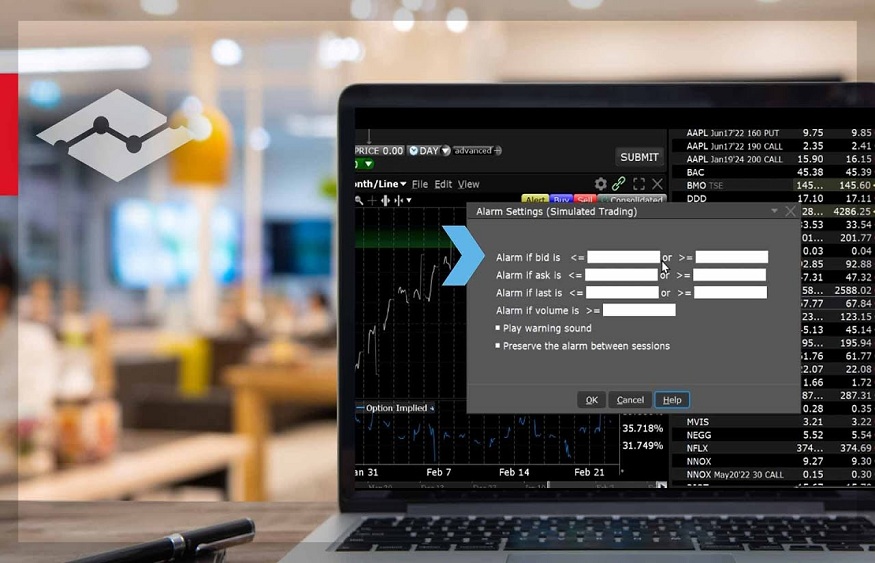In finance, investing, and trading, there are numerous intricate terms and strategies that every investor should thoroughly familiarise themselves with. An essential word is the ‘AON order’, ‘All Or None’. This type of order is particularly prevalent in stock trading and has significant implications for traders and investors.
An AON order refers to a specific type of order where the entire quantity of shares requested must be executed in its entirety or not at all. In other words, if an investor places an ‘AON order’ to buy or sell a certain number of shares, the order will only be executed if the entire quantity can be fulfilled. The whole order will be cancelled unless even a single claim cannot be achieved.
The AON order is commonly used by traders and investors who prioritise executing large transactions without partial fills. It helps to avoid the risk of receiving only a portion of the desired shares, which can be detrimental to specific trading strategies or investment plans.
Using an AON order, traders and investors can ensure that their orders are executed only when the entire quantity can be fulfilled, minimising potential market impact or incomplete transactions.
Understanding the intricacies of terms like AON order is crucial for any investor looking to navigate the dynamic world of finance and trading successfully. By familiarising themselves with these terms and strategies, investors in the UK can make more informed decisions and effectively manage their investment portfolios.
What is an AON order?
An AON order is a specific buy or sell order that tells the broker to fill it with the required shares or cancel it entirely. It differs from a regular order, where partial fills are allowed, meaning the broker can execute only a portion of the order if necessary.
In an AON order, the investor specifies a particular quantity of shares and sets a condition that the entire amount must be executed once for the order to be fulfilled. It means that even if there is enough demand or supply for the shares, and some of the shares are executed, the entire order will still be cancelled.
Benefits of using an AON order
Using an AON order has several benefits, making it a prevalent choice among traders and investors. Some of these benefits include:
Minimising market impact
Investors can effectively minimise any potential market impact by utilising an All-or-None order, which ensures that the entire quantity is filled in a single transaction. This order type becomes particularly crucial for large transactions that have the potential to influence the price of security significantly. With an AON order, investors can execute trades with greater precision and control, safeguarding against adverse price movements and optimising their overall trading strategy.
Avoiding partial fills
Partial fills can be problematic for traders and investors as they may need to align with their investment strategies or plans. Using an AON order, they can avoid receiving only a portion of the desired shares and ensure their entire order is executed.
Managing risk
For traders and investors, managing risk in stock investing is crucial. An AON order helps to reduce the risk of incomplete transactions or receiving only a portion of the desired shares, allowing them to manage their investments effectively.
When should an investor use an AON order?
Investors often opt for an AON order when carrying out a substantial transaction while ensuring the entire quantity is filled without any partial fills or significant market impact. This order type is beneficial in various scenarios, such as when an investor intends to buy or sell shares.
Traders can also execute a specific trading strategy that necessitates all shares to be filled in a single instance or when the aim is to minimise risk by avoiding partial fills that may disrupt the overall investment strategy. By utilising the AON order, investors can maintain greater control and precision in their trading activities, making it a valuable tool in their arsenal.
Potential drawbacks of using an AON order
Here are some drawbacks that investors should be aware of, and these include:
Increased risk
By setting a condition for the entire order to be filled, such as requiring a specific quantity of shares, there is a higher risk that the order may not be executed because if there is insufficient demand or supply for the shares, the order may not find a match in the market. It’s essential for investors to consider this risk when placing orders and to evaluate the market conditions before making decisions.
Limited flexibility
AON orders do not allow for partial fills. If the entire order cannot be executed, investors may miss out on potential opportunities or adjust their strategies accordingly. It can pose challenges in managing investments and requires careful consideration to ensure optimal execution and desired outcomes.
With that said
An AON order is a specific buy or sell order requiring the entire quantity to be filled in one go. It offers several benefits, such as minimising market impact, avoiding partial fills, and managing risk. However, it has potential drawbacks, including increased risk and limited flexibility. Understanding the intricacies of an AON order is crucial for investors in the UK looking to navigate the complex world of trading successfully. By effectively utilising this order, investors can make more informed trading decisions and manage their investment portfolios.



